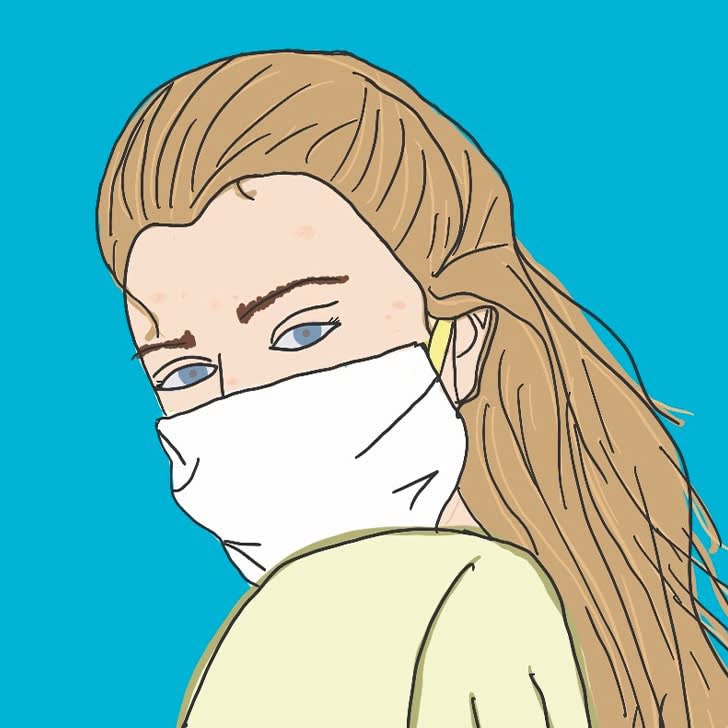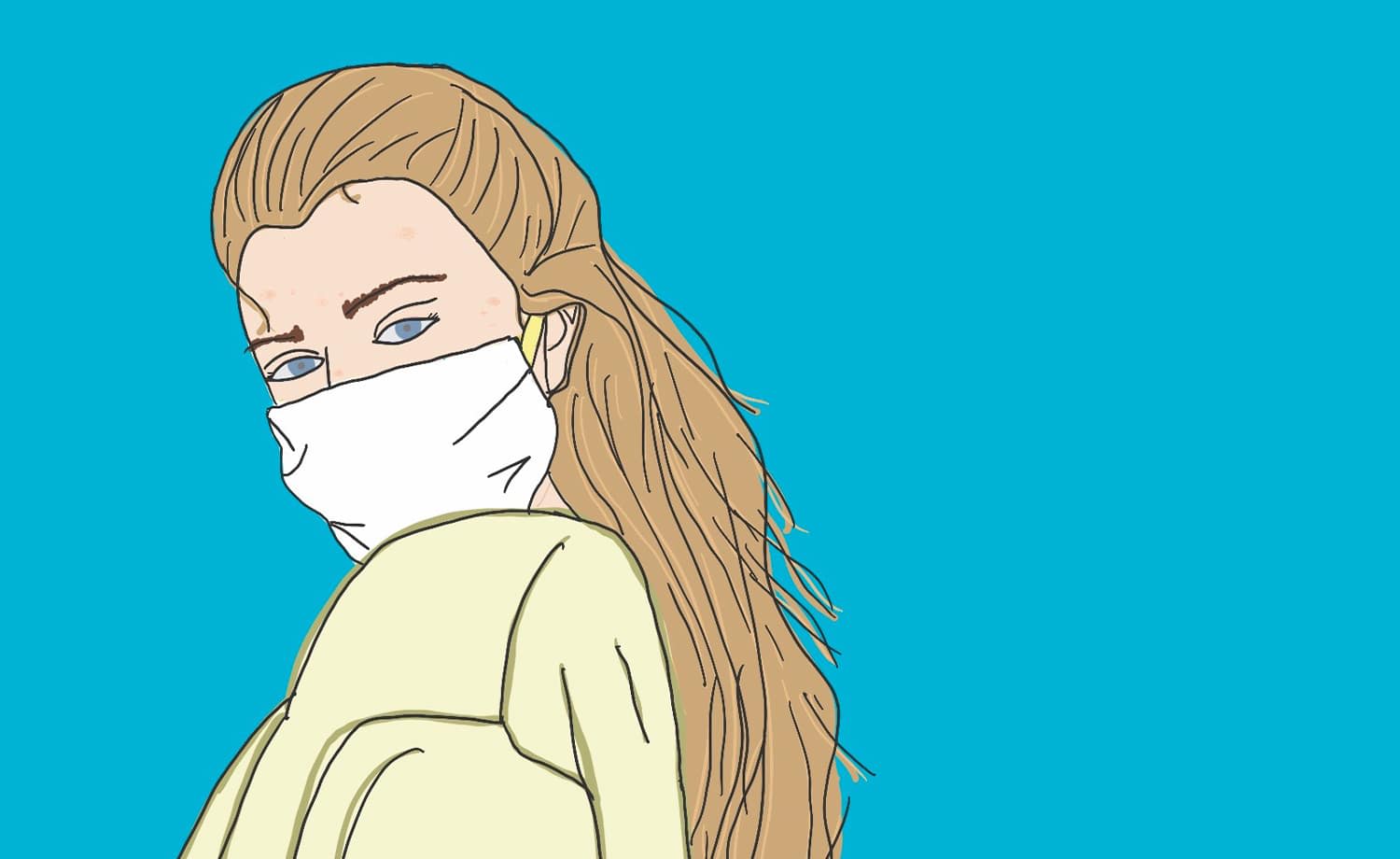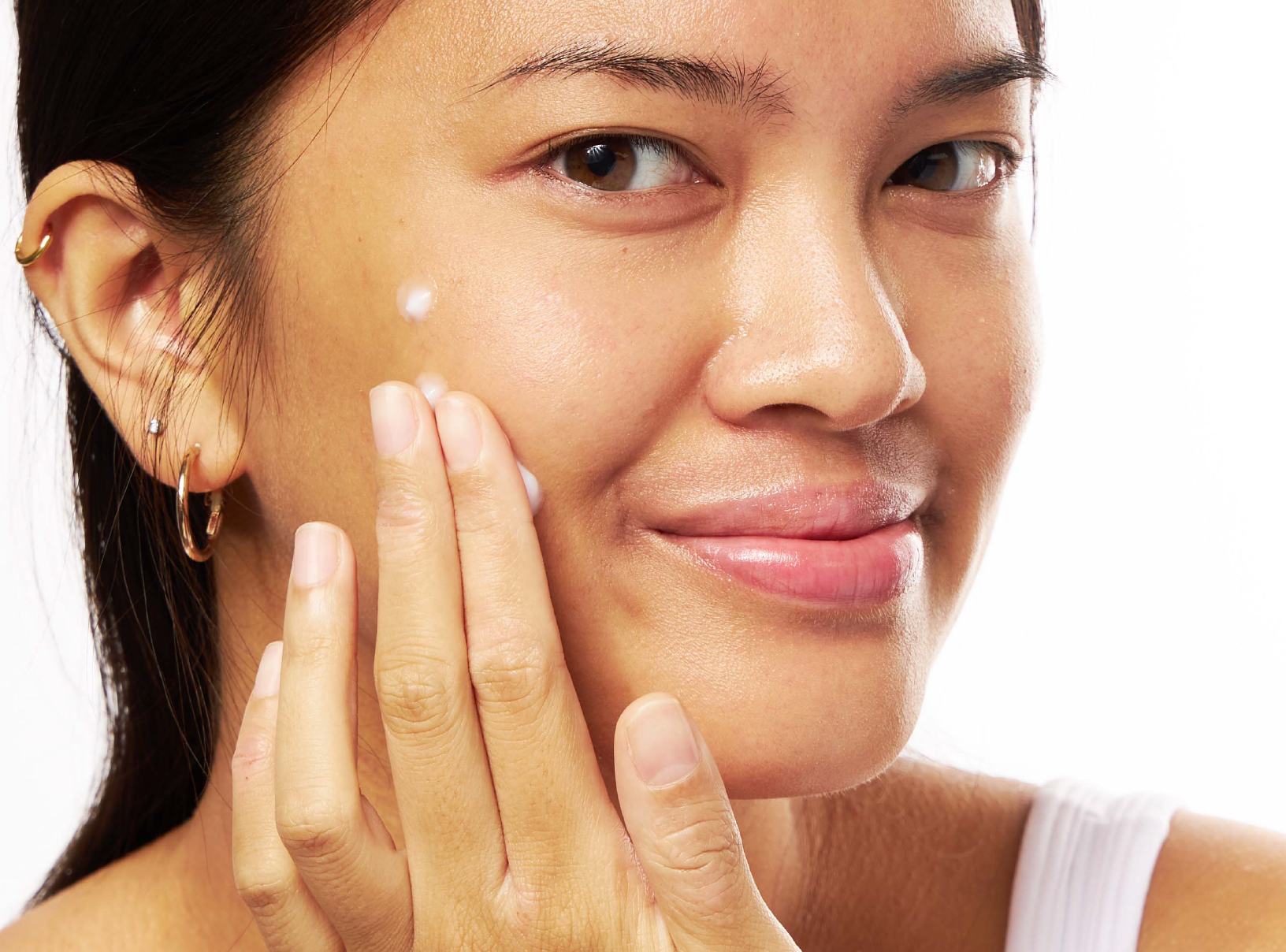Education
Maskne: outsmart this acne breakout culprit


SHARE
Education
Maskne: outsmart this acne breakout culprit
Medically reviewed by Kristin Hall, FNP
Written by Apostrophe Team
Last updated 11/1/2024
We all want to be healthy. No one wants to get COVID-19 or see any of their loved ones get sick. And as we’re in the midst of a global pandemic, we’re doing our parts to slow the spread of this coronavirus, wearing masks, and keeping a safe distance from other people.
But those actions come with consequences.
In the scheme of things, getting acne is a relatively minor inconvenience given the alternative. If acne is your biggest inconvenience right now, compared to joblessness, illness, the loss of a loved one — also effects of this pandemic — you might feel guilty for even sweating it.
But if 2020 has taught us anything, it’s that taking care of your physical and mental health is very important and you can do this in many different ways. Skin issues like acne can impact your quality of life, and we need all the help we can get right now.
Is “Maskne” a Real Thing?
Of course it is. If you’re already breaking out, you know it is.
And the phenomenon has an actual scientific name: “acne mechanica.”
Acne mechanica is a type of acne typically caused by sports equipment like helmets, straps or protective gear. But it can certainly be caused by any face covering.
Acne mechanica is actually caused by the rubbing and friction caused by sporting equipment, so you’re most likely to experience it where your face mask makes contact with your face — around the edges and straps, particularly.
Generally, it first appears as rough feeling bumps that may be easier to feel than see. But these rough bumps can develop into acne lesions like pimples and cysts.
It’s said that acne mechanica clears up more quickly than typical acne. But that may not be the case if you can’t get away from the cause of the acne — namely, your mask.
Still, taking steps to treat acne with the help of a healthcare professional and practicing good mask hygiene can make a huge difference in eliminating the trouble growing under your mask.
Tips for Preventing Maskne
There are some steps you can take to prevent maskne. Many of them are simple acne-prevention tips that are applicable whether or not you wear a mask. But others apply specifically to caring for your face in light of it being covered.
Keep your skin and mask clean. Wash your face twice-daily with a mild, gentle cleanser, or more often if you’ve been sweating under your mask. Be diligent about your skincare routine.
But don’t stop there. Make sure to always wear a clean mask, which means washing it regularly to get rid of bacteria and other contaminants like viruses and germs.
Keep your skin and mask dry. Sweating under your mask or otherwise having a damp face can create a breeding ground for bacteria. If your mask is wet, take it off and replace it. If your face is sweaty, find a safe place to remove your mask and pat your skin dry.
Give your face a break. Find areas away from people and outdoors where you can safely remove your mask for periods throughout the day. Ideally, you can spend a good portion of your day maskless (like when you’re at home), but when you have to go to work or otherwise be around others, don’t forget to step outside now and then and breathe some fresh air.
Use skin care products that don’t worsen or cause acne. Look specifically for products labeled non-comedogenic. You may also consider a barrier cream or moisturizer with hyaluronic acid to balance your skin’s moisture.
Treating Maskne
Acne treatment — whether your acne is caused by mask-wearing or by stress, genetics or something else entirely — is well-established.
What that means: there are numerous proven solutions. Sometimes one solution will work better for your flare-ups than others, but this doesn’t mean you have to go broke trying everything on a drug-store shelf.
Treating acne in the most direct and quick manner typically involves enlisting the help of a healthcare provider or dermatologist. They can help determine the exact cause of the acne — is it the mask or are you acne-prone regardless? — and determine the best course of action given your medical history.
Here are a few of the most common acne solutions that could be appropriate for treating the blemishes and breakouts under your mask:
Topical over-the-counter solutions
The easiest to get a hold of, and generally the least expensive, are topical over-the-counter acne treatments that can be found at your local drug store or online. They include things like benzoyl peroxide or salicylic acid, which can fight the bacteria that worsens acne, and act as a drying agent for oily skin.
Topical prescription solutions
The gold standard for topical acne treatment is the use of retinoids such as tretinoin. They act as an anti-inflammatory, reduce the number of pimples and are often used in conjunction with antibiotics for moderate to severe cases of acne.
Oral prescription medications
Oral antibiotics are most often used for moderate to severe cases of acne. If your acne is mild and only caused by wearing your mask, oral antibiotics may not be the right fit for you. Some types of oral contraceptives are another form of oral anti-acne treatment. Hormonal birth control can be particularly effective if your acne coincides with your monthly cycle.
If you’re trying to find the right acne treatment for your mask-related breakouts, get connected with an expert derm team through Apostrophe today.
Resources
https://www.aad.org/public/diseases/acne/causes/sports-equipment
https://www.hopkinsmedicine.org/health/conditions-and-diseases/acne
Shop this post

Tretinoin
Like what you just read? Sign up for our email list to get the scoop on skincare science delivered straight to your inbox.

Deep Dives
A dermatologist shares his thoughts on the recent studies about benzoyl peroxide and benzene.
Read More
Education
What is milia?
What is milia? Today, we’re jumping into one type of bump that you may have heard about most commonly in infants — milia.
Read More
Education
Best moisturizer for acne-prone skin
If you have combination acne-prone skin, figuring out which moisturizer is best for your skin might be tough. In this guide, we break down the best moisturizer for combination, acne-prone skin.
Read More
